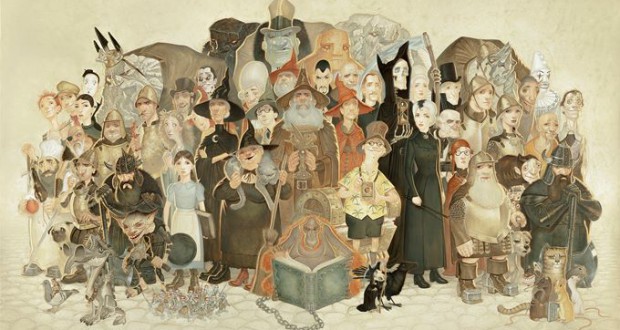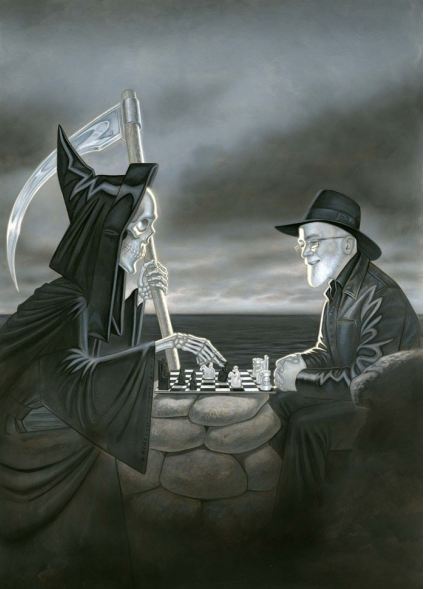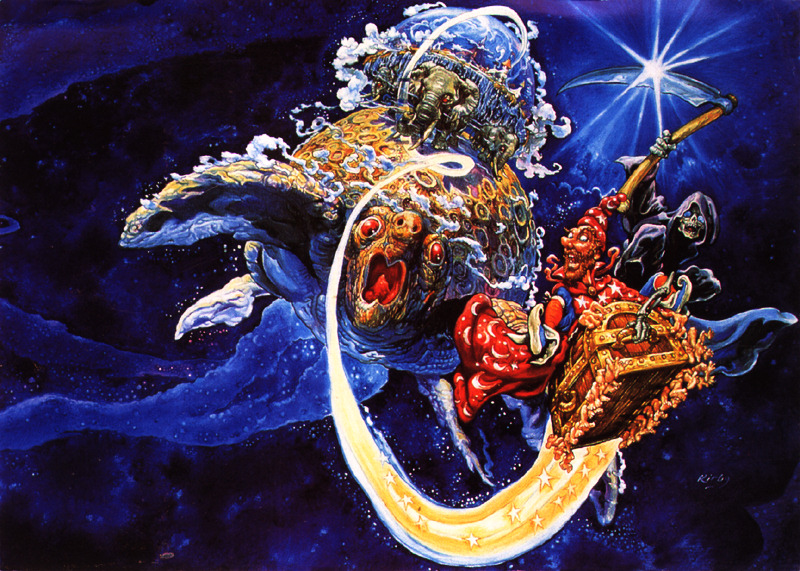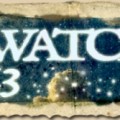Pain. Loss. Grief. Sorrow. Anger. Disbelief.
These are not the emotions you usually expect to be bombarded with on your social media. But that was what was rolling over the internet yesterday as news broke of the death of Sir Terry Pratchett. A lot of the time when someone famous dies, I’ve found out about it from friends through social media before I hear of it/confirm it from mainstream news sources. A couple of weeks ago, on February 27th, the renowned actor Leonard Nimoy died. There were tributes and posts flowing, some wonderful pictures and a lot of fond memories of Star Trek were shared. People were discovering they had friends who were trekkies, from hardcore fans to casual admirers. Some were sharing stories of meeting the man in real life, others talking about their favourite moments or quotes from the characters he played. Mr. Spock’s “live long and prosper” was aptly rejigged to “he lived long and prospered”. A few were completely bemused by the levels of sorrow on display from people who didn’t know the man personally, but still felt like sharing their grief with the world.
People have always formed attachments to celebrities that confuse the rest of the world. With social media and constant updates, it is very easy for fans to find each other and relate. There are times when you are grieving when you want to shut the world away. But there are also times when what you need is a friend, a hug, and a sympathetic ear. You want to swap stories about the deceased, to help them live on in your memory when they aren’t present anymore. Having your tweet or your post go out to the world and to hear the condolences and echoes of grief coming back has become comforting in a way that couldn’t have been imagined when we first took to the internet. To many, Terry was not a celebrity. He was a friend.
Terry’s family did not shy away from the public in his final hours. Rob, his assistant and right hand for so many years now, continued to tweet to fans from @terryandrob the poignant message that Terry was on his way out, as did his daughter Rhianna: “Terry took Death’s arm and followed him through the doors and on to the black desert under the endless night.”
The news of Terry’s death hit me hard. I always knew it would be tough, but I didn’t realise how raw my grief would be. Although perhaps I should have known, as back in August, to a room full of over 900 fans, Neil Gaiman’s introduction to Terry’s non-fiction collection A Slip of the Keyboard was read out, and his musings on Terry’s passing ensured there wasn’t a dry eye in the place. If you haven’t read it, I can’t recommend it enough. As well as being a fan of the books, I met the man a few times. I have spent almost a decade attending and, lately, running, events based around the Discworld books. I started reading him in my formative years, and can safely say reading his books made me a better person. His views on ethics, sin, injustice, history and on society have influenced countless people. While he made you laugh with one quip he opened your heart and mind with another. Many people have been sharing these sentiments online yesterday and today, and what I’ve seen most from people who hadn’t met him is that they feel weird or guilty mourning Terry, so I shared some thoughts on this:
Whether you were lucky enough to meet him a dozen times, or just read and loved his books, the sorrow you feel is your own, and you have a right to feel it no matter how removed from him you were. But it is so lovely to see in this community and others that we are not alone in grief.
Terry as a person: I was lucky enough to meet Terry a handful of times face to face. And only gibbered like an idiot the first time. He had a captivating presence and treated fans very well. It was a delight to meet him, and an honour to speak with him. My heart goes out to his family and his friends, whose pain and loss, sorrow and anger, love and devastation, must be incredible. The thoughts of all his fans are with you.
Terry as an author: a friend remarked that she felt odd mourning someone she didn’t ‘know’. But of course, through his works, his wit, his wisdom: we knew him. We knew his humour, his musings, his mastery of language, his deep sense of outrage at injustice. He showed us the best and worst of ourselves as individuals and groups in the mirror of Discworld. And many of us have ‘known’ him for years, even if not lucky enough to put a bearded and hatted face to the man we knew on the page. I mean no disrespect in describing him up as Vimes with a twist of Rincewind raised by Mistress Weatherwax, but we found him in his characters and footnotes. The loss is not less keenly felt for a lack of personal interaction. We all have the right to mourn and grieve our friend. I’ve resisted the temptation to say ‘words cannot express’ – first because clichés aren’t a decent reflection on this man, but mostly – because he taught us that words can express. They can capture the infinite and ensorcel the mundane. Words can change the world. His words have changed lives. Thank you Terry, for everything. We will miss you.
All around the world last night, people took time to #toastforterry. Yesterday and today there has been gathering upon gathering proposed in his honour. Whether it’s this weekend, his birthday in April, or the 25th of May (a date only special to fans), sometime in the next few weeks those who loved his books will gather and grieve together in person, the way they have these last hours online. I’ve heard what has been happening online termed a ‘virtual wake’, and indeed it shares many similarities with that ancient tradition. Staying up with your fellow mourners. Running the gamut of emotions from joy in the memory of him, anger at his passing, sorrow that he’s gone, and back to giggles at the thought of his reaction to all of us mopping around.
It has been amazing. There’s still the pain and loss and sorrow, the disbelief, anger and grief. But overwhelmingly, there has also been love, understanding, sympathy, comfort and consolation. In Terry’s own words: “no one is finally dead until the ripples they cause in the world die away” (Reaper Man). In my mind, and the minds of all his readers, the ripples will never fade. The turtle still moves.
 Pop Verse Pop Culture Universe
Pop Verse Pop Culture Universe








Neil Gaiman’s work is here:
http://www.theguardian.com/books/2014/sep/24/terry-pratchett-angry-not-jolly-neil-gaiman
This is definitely among the best of the many many reflections on Terry Pratchett that I’ve read in the past two days. Thank you, Shivers.
TRiG.
GNU Terry Pratchett Ook